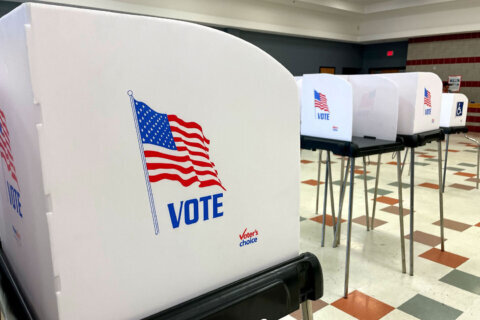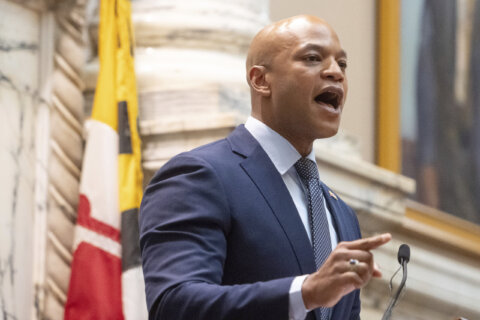ANNAPOLIS, Md. (AP) — The Maryland House voted Thursday for budget measures with tax and fee increases, part of a $1.3 billion revenue package for transportation and education.
The vote paves the way for negotiations to begin next week with the Senate, which has not been receptive to the House’s tax, fee and toll proposals in the $63 billion budget plan for the next fiscal year.
Del. David Moon, a Montgomery County Democrat, said the investments are needed to restore economic competitiveness to attract and keep businesses by improving transit and roads and expanding child care.
“We’ve put our best foot forward to try not to put broad tax and fee increases on the table,” Moon, the House majority leader, said. “Everything is surgically aligned with a very specific reason.”
But opponents said the proposals will overburden taxpayers.
“We want to continue to work together as one Maryland to advance policies that will help us meet our budgetary needs, but we have serious and grave concerns about doing so on the backs of middle class folks buying, trading in, registering vehicles that they need to use to be able to get to work, to get to the hospital, to take their kids to school,” said Del. Jason Buckel, a western Maryland Republican who is the House minority leader.
The House voted 121-9 for the state’s budget. Opposition grew for a companion bill that is working in tandem to balance the state’s books and includes the tax and fee increases, changes added into the measure by the House. The House passed the budget reconciliation bill 89-45.
It would raise the vehicle excise tax from 6% to 6.5%. It also would adjust a vehicle trade-in exemption to apply only when a vehicle is traded in for a zero-emissions or hybrid vehicle. It also would raise revenues by changing vehicle registration fees, based on new weight classifications, and imposing a statewide ride-sharing fee of 75 cents.
The House plan includes a tax change affecting corporations known as combined reporting. It requires subsidiaries of big businesses to add profits together, preventing multistate corporations from avoiding taxes. Revenues raised by this provision would help pay for the state’s growing costs for a K-12 education plan known as the Blueprint for Maryland’s Future.
The blueprint, approved in 2020, phases in larger amounts of money to expand early childhood education, increase teachers’ salaries and provide aid to struggling schools.
“This includes a commitment to providing students and families with the supports that they need through our community schools,” said Del. Vanessa Atterbeary, a Howard County Democrat who chairs the House Ways and Means Committee. “This is not an easy task, and it’s not an inexpensive task, but it’s a promise we made to the children in our state.”
The House already has passed separate legislation to raise $75 million a year for a decade for transportation through tolls.
Delegates also approved a separate bill to allow internet gambling to help pay for education. It would require a constitutional amendment.
But most of these proposals do not have support in the Senate, where leaders have said their plan already funds the blueprint for the next fiscal year. With the state’s ample reserves, senators have said they would rather wait and develop a way to pay for rising blueprint costs with greater deliberation.
Senate President Bill Ferguson told reporters this week that internet gambling and combined reporting were a “hard no” this year.
“Those are not things that we will be taking up this year,” Ferguson, a Baltimore Democrat, said.
The tax and fee provisions inserted by the House in the budget reconciliation measure also lack Senate support so far.
Copyright © 2024 The Associated Press. All rights reserved. This material may not be published, broadcast, written or redistributed.







